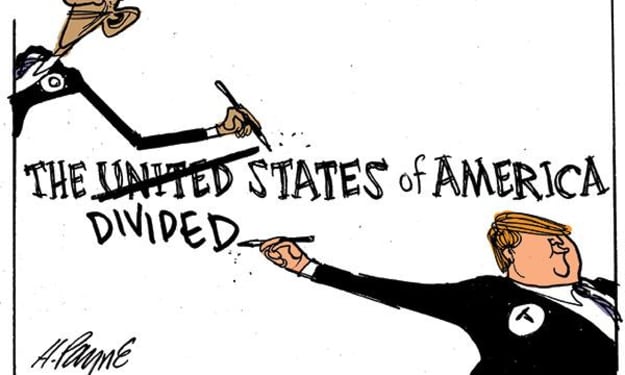No Backbone: The Millennial’s Integrity Struggle
Since the beginning of mass usership of social media with the millennial generation, the spread of misinformation has been wildly abundant. So what is the problem? Millennials do not seem to care about facts.

Millennials spend large amounts of time on social media, hence the reason it has become the platform most used for the spread of misinformation. Twitter, Instagram, Facebook, Snapchat, and every other big brand social media outlet all started out with their own respective purposes. As time went on and the market moved forward, to stay competitive, each outlet added more features within their respective software. All of the apps aforementioned all have a news feature, but the pretenses upon which they were founded do not have a direct need for one. Facebook started out as a way for friends to network with each other, and potentially see friends of friends, but it is now one of the biggest outlets responsible for "fake news." Twitter originated as a simple way to share thoughts with the world in 140 characters, but it is now home to massive amounts of misinformation. Social media has been perverted while trying to expand due to the market’s demand.
It is entirely unfair to blame the entire shift away from fact on millennials, but they play a pivotal role in the progression. So what is it that makes the millennials guilty in the epidemic of misinformation? The answer is short and disheartening—they do not care. Millennials show limited concern for producing or perpetuating news without merit. In a recent study by Stanford University testing media literacy in the millennial generation, the researchers were “shocked” by the responses. Nearly 40 percent of respondents argued that a fake version of a news source was more reputable than the actual source. There have been contending views as to why exactly there is such ignorance to fact, but the truth remains, there is a plague of misinformation. Further research has been done that may suggest why the youth is content spreading and digesting false information, especially online. The online community provides a perceived lack of accountability. Teens are posting things online that they do not consider saying in-person without proper research. This provides a false comfort due to the ability to delete whatever is posted. This false comfort is simply an escape from the reality of responsibility for one’s words and actions.
Sensationalism is a large aspect in regards to the prevalence of misinformation. On outlets, Twitter being a prime example, an individual can become famous from a single post. Millennials see their peers being recognized and are often persuaded by the attention. It is very similar to the news stations being criticized for false reporting. With everyone anxious to produce a story, or make a large break, the facts and attention to detail get left behind. The millennial generation falls victim to a similar type of luster, primarily driven by the potential for stardom or massive amounts of attention. This depressing reality can lead to mass misinformation in regards to serious subjects. Twitter "fake news" is extremely prevalent after shootings. Things that should be spoken of with the highest amount of sensitivity are being slandered by teens with quick fingers and eager minds, ready to watch their notifications ripe with attention.
The sad but honest truth is that the millennial generation does not value the truth. It is toxic individualism. All of the reasons aforementioned had to do with selfish motivations. Whether it be lack of interest in accuracy, no fear of disseminating false information, or lacking integrity for the sake of individual gain, the truth is being sacrificed for selfishness. There is a crossroads culturally that is approaching, and knowingly ignoring this epidemic is not an option. A society in which the younger generations do not value the virtue of truth is a society on the edge of destruction.
About the Creator
Dillon Staples
My name is Dillon Staples. I am a sophomore at Eastern University in Pennsylvania. I am a Political Science major and History minor. Political criticism falls on deaf ears when respect is absent.






Comments
There are no comments for this story
Be the first to respond and start the conversation.